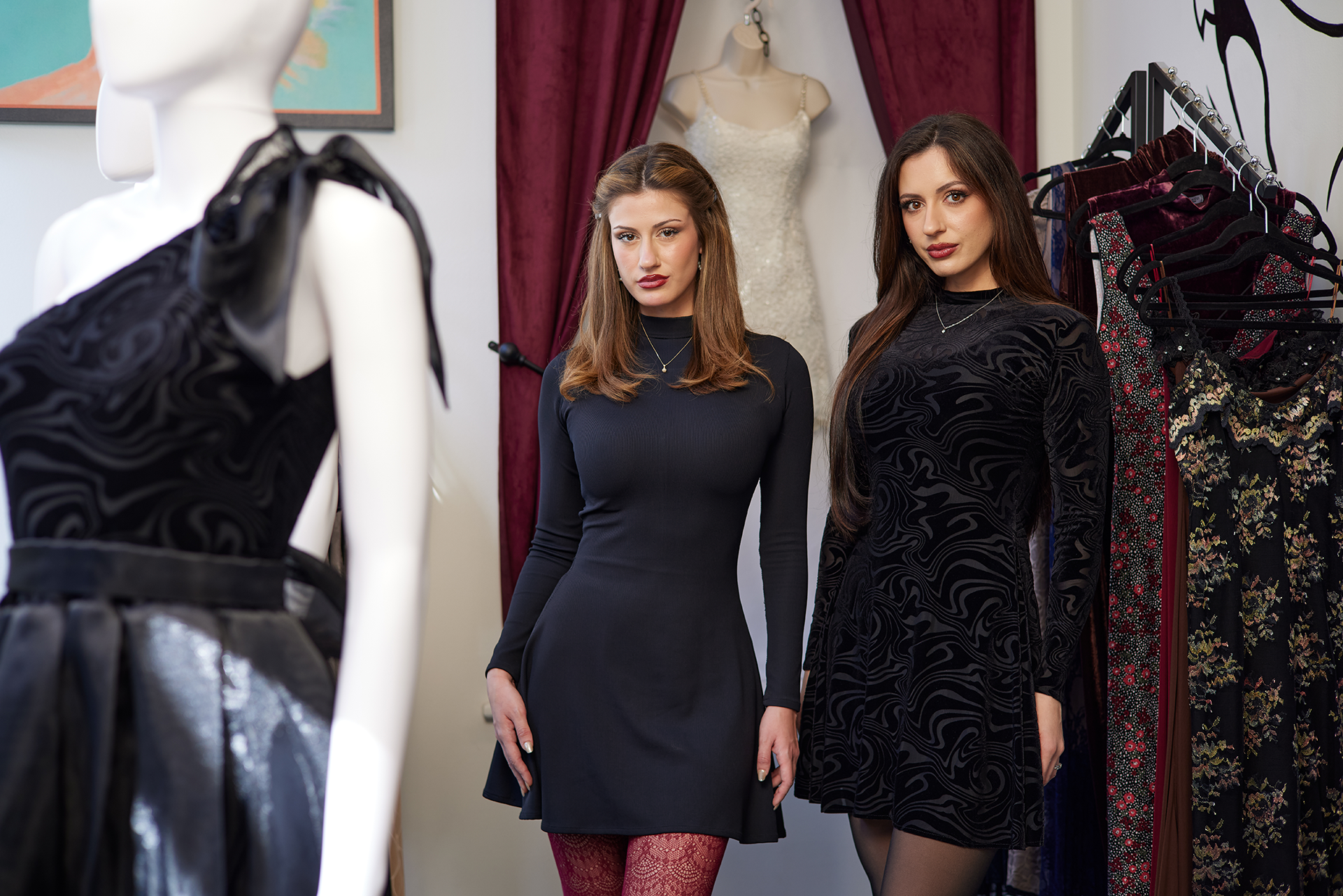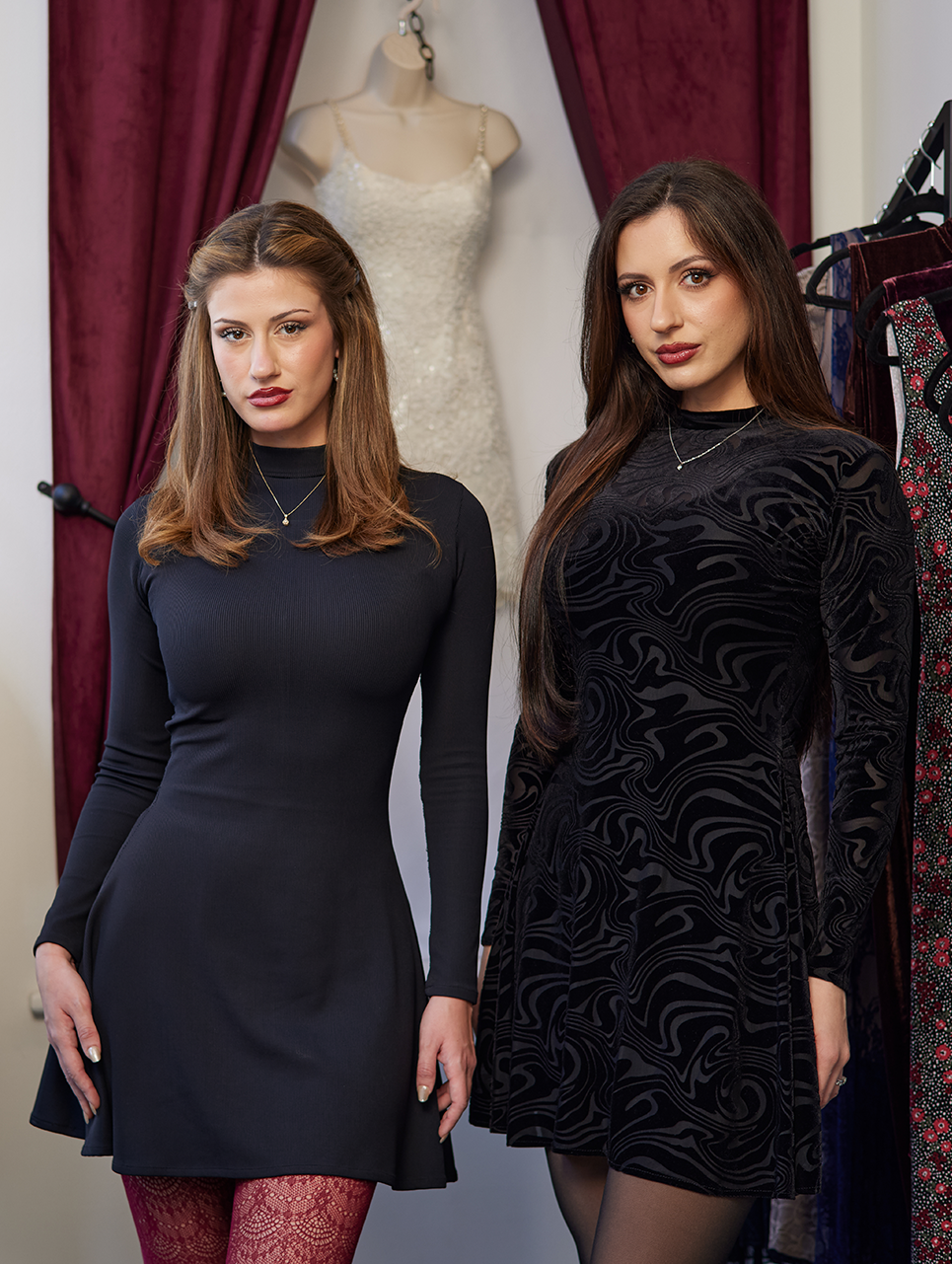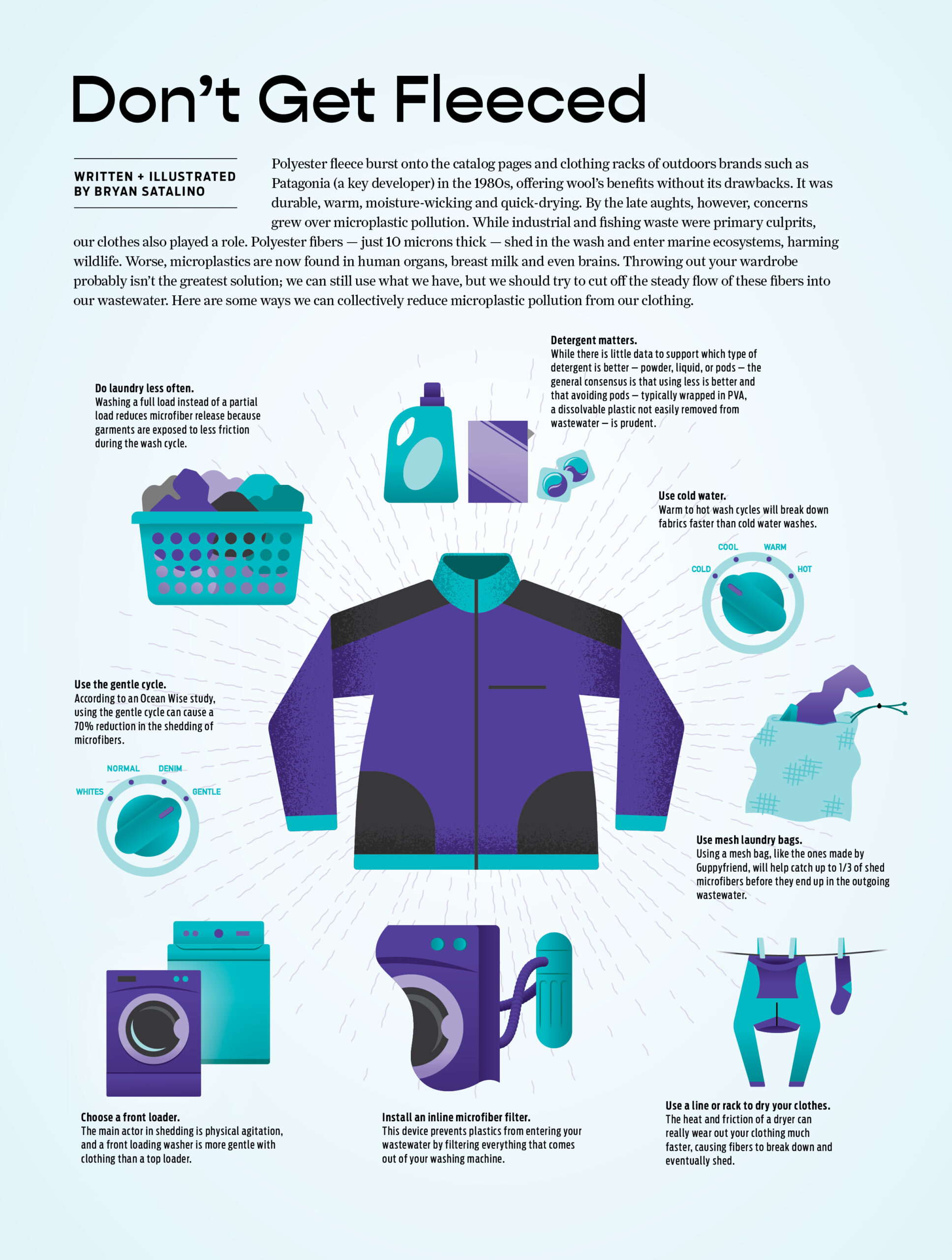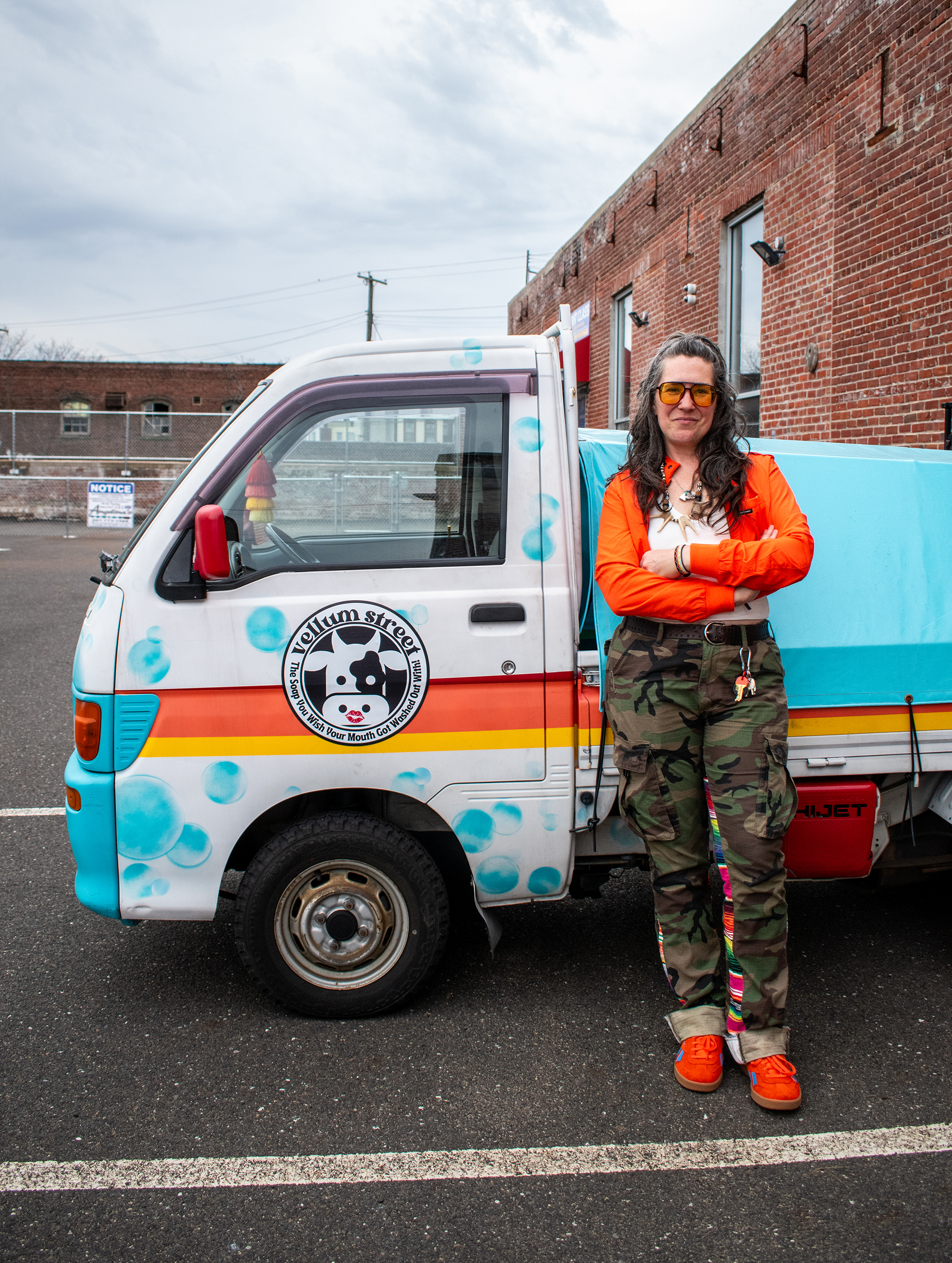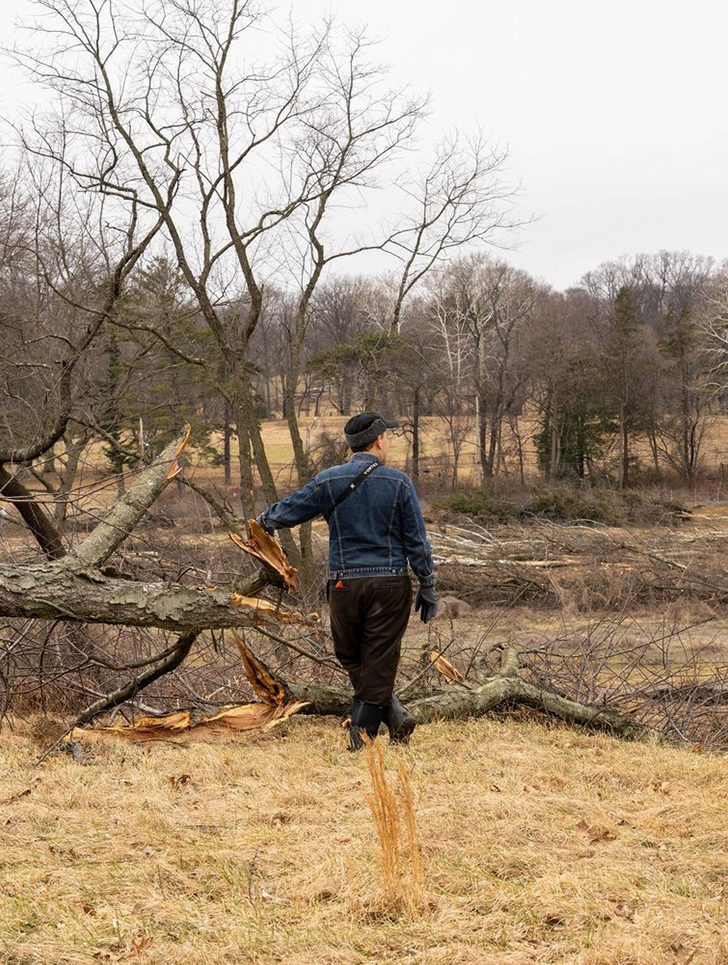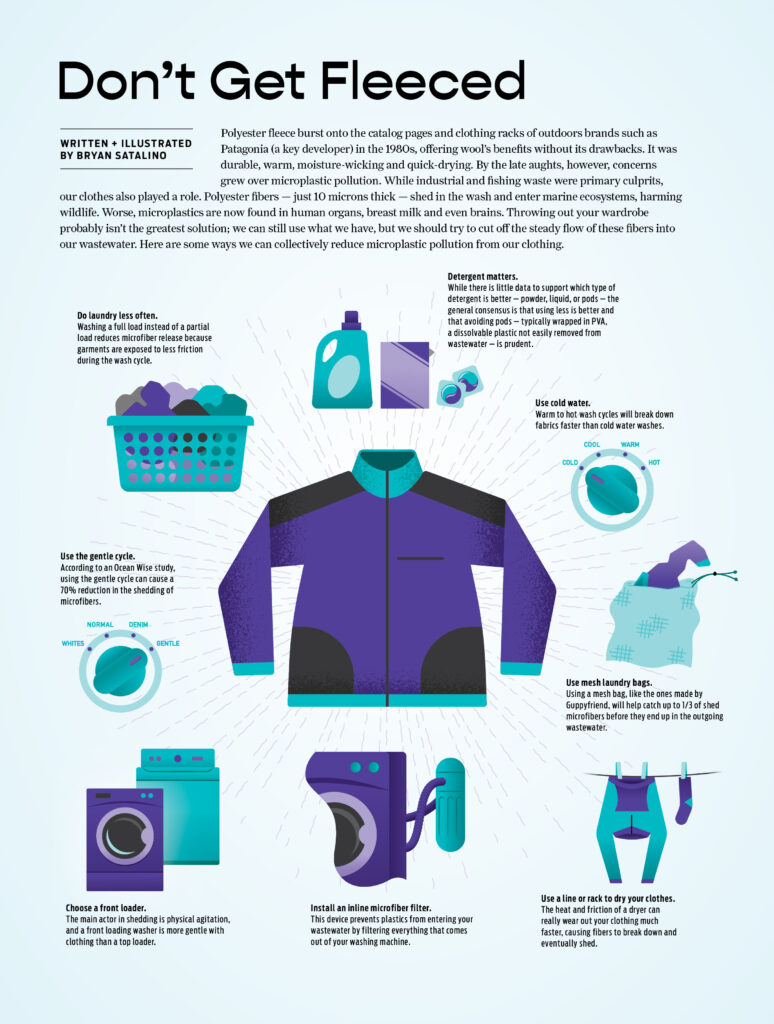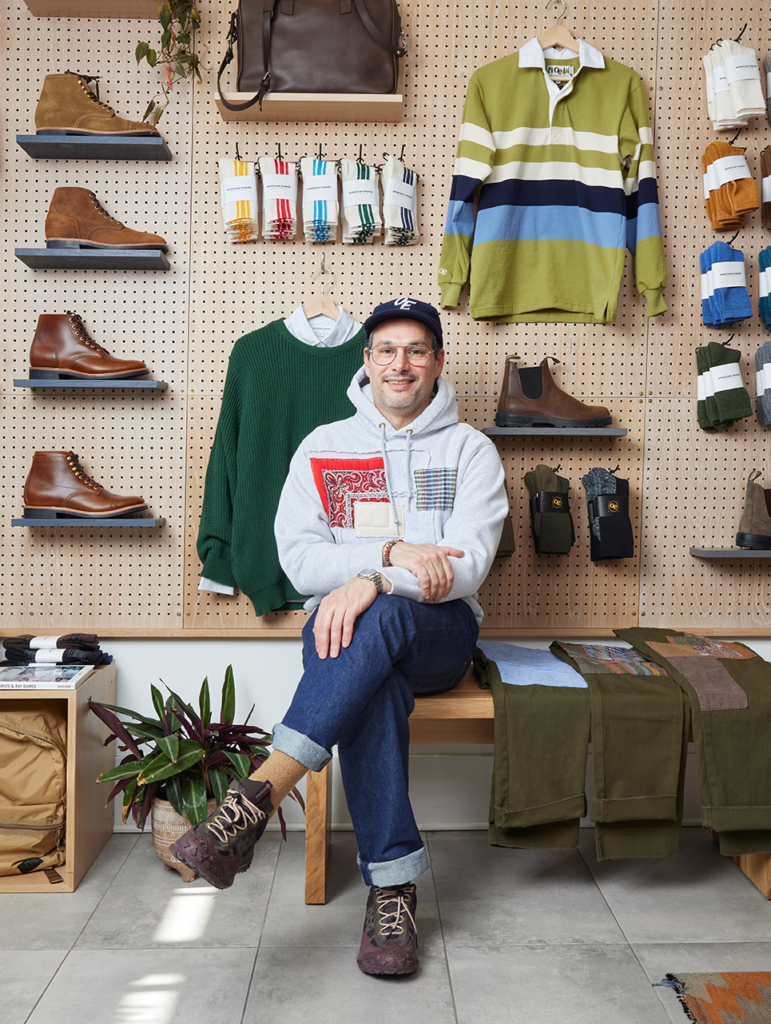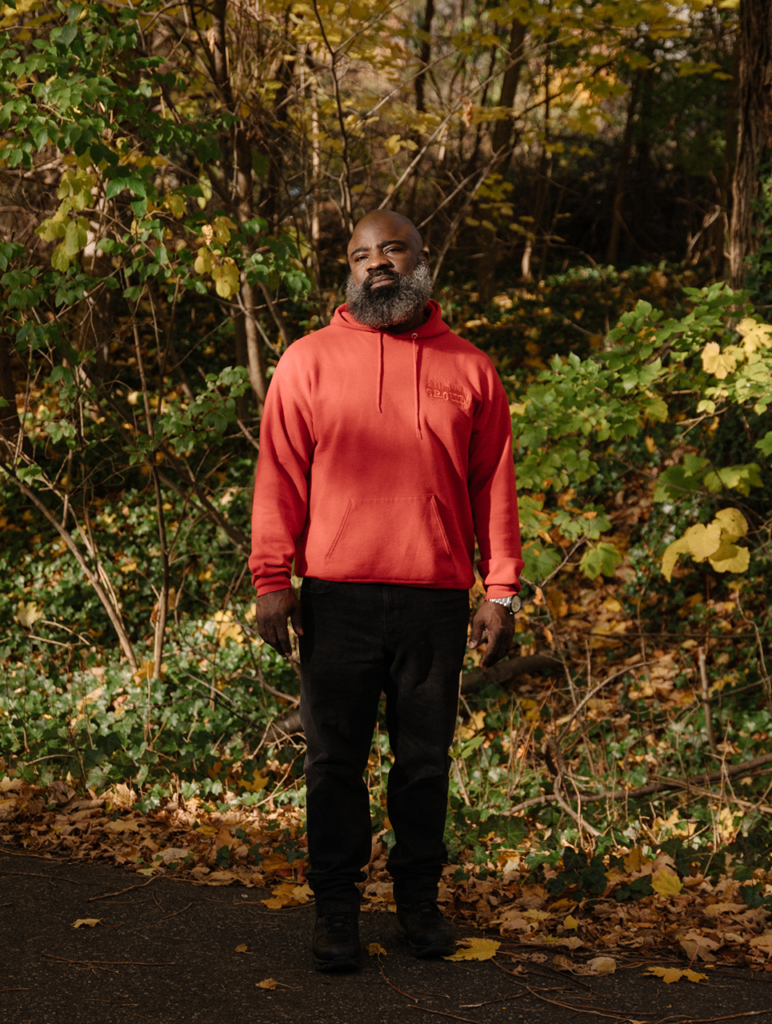The handmade dresses of red lace and black silk displayed in the tall, arched windows of Dafina Co. in Old City (47 N. 3rd Street) prompt passersby to pause and imagine slipping into such elegance. Inside the boutique, restrained electronic music and French artwork set the stage for the runway-ready clothing that designer Gerta Hebeja says not only gives the wearer confidence, but also goes easy on the planet.
Gerta co-owns the boutique with her mother, Anila Hebeja, a dressmaker. Her sister, Megi, models for the Dafina catalog. Together, the Hebeja women are encouraging people to invest in timeless clothing that they will love for years, rather than buying fast fashion by the truckload.
It starts with quality fabric, Hebeja says. She looks for materials with a luxurious feel. “There must be a fullness to the fabric.” While much of it comes from Philadelphia and New York, Hebeja also acquires materials during her regular visits to her Albanian grandparents. Limited-edition fabrics come from Turkey and Italy. To minimize waste, she buys only what’s needed, and any scraps of leftover material are repurposed as detailing or used for accessories.
As a young girl, Hebeja was inspired by the beautiful clothing she saw when visiting Albania, where people traditionally design their own wedding outfits and have them made locally. Hebeja started designing her own clothes at the age of nine. Over time she came to believe that clothing should be comfortable. “If it makes you feel constrained, that’s taking a step backwards,” she says.
Hebeja earned a business degree from Temple University, but watching her mother work made her decide on a career as a designer. She noticed how the clientele stayed loyal over her mother’s 25 years as a Roxborough dressmaker — despite several moves. At Anila’s, her mother’s shop (6502 Ridge Avenue), she came to realize that “people prefer clothing they feel connected to.”
Priyanka Purohit, a local software engineer and part-time actor, first encountered Dafina at the Rittenhouse Row Spring Festival, where she purchased a dress detailed with embroidered lace, she said in an email. She returns to the shop because she always finds unique items that she knows will last. “I’m so glad I found them!” she says.
Customers often tell Hebeja they need clothing that transitions beyond the workday. In response, she developed the Elevated Basics Collection, epitomized by pieces like the Jane dress, where luxe fabrics and body contouring lines give a simple design added versatility.
Collection launches, like the recent Spring/Summer debut, give customers a chance to update their wardrobes. Prices range from $89 to more than $1,000 for special occasion dresses. Simple alterations are complimentary, but for more extensive work customers receive a 20% discount at Anila’s.
While the family would like to expand, they have no plans to do so until they can hire sufficient staff to maintain ethical working conditions and product quality. Even at its current size, Dafina takes on interns — some from Philadelphia colleges, others from as far away as Florida — who gain experience in marketing, fashion merchandising and design.
Hebeja says Dafina is spreading the word that “when you put something on that you really love, you attract better things in your day.”
